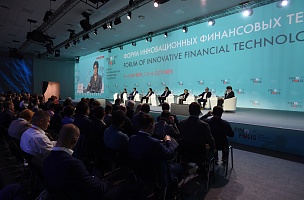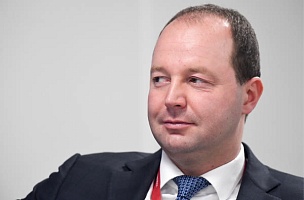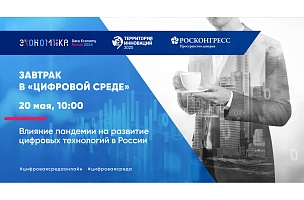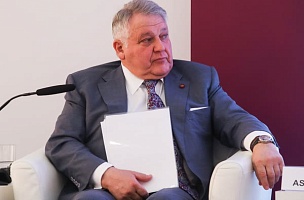Key conclusions
There is no single leading technology in artificial intelligence
“What is meant by asking what technology holds the greatest promise or where the best trends lie? Are we going to argue about it? Of course not. What we can actually identify now as a super-trend is the so‑called 3M, or M cubed. First of all, this of course refers to mega-transformers. <...> It’s about multimodality, when different modalities are processed by this model. By this, I mean it’s something that can read and write. <...> It can tackle both financial and non-financial tasks. It’s really amazing stuff. In terms of multitasking, gate to deep mind, for example, 600 tasks can be handled simultaneously,” Alexander Vedyakhin, First Deputy Chairman of the Executive Board, Sberbank.
“When it comes to tackling our tasks and what we use for this, it cannot be about one issue alone. Given the way all issues surrounding artificial intelligence are unfolding at such a rate, they need to be separated into a minimum of two branches. The first covers technology and production. Why is that? Because implementation has begun apace. Industrial-scale implementation requires us to review how we work with technology. <...> The second branch is about pushing this intelligence to a new level. In this regard I’m in absolute agreement with my colleague,” Anton Fedchin, Head, Odnoklassniki.
“It has now begun to turn into an exact science. <...> If the model – and this is already a precise statement – does not change too much during the learning phase, then we can say virtually everything [about it – ed.]. That includes transformers. Basically, the size of the model doesn’t matter. This is a multidimensional problem, and one very effective way to tackle tasks of this kind is through approximation,” Alexander Kuleshov, President, Skolkovo Institute of Science and Technology (Skoltech).
Healthcare is a sector where artificial intelligence has been employed successfully
“Today, there are sectors demonstrating clear-cut successes – primarily in healthcare, speech recognition and synthesis, and processing images, including medical ones,” Andrey Travnikov, Governor of Novosibirsk Region.
“We need to respond to challenges posed by infectious diseases within a month. Without artificial intelligence this would simply be impossible. Cytologic evaluation – the analysis of genomic changes and mutations – and tackling hereditary diseases, are things that artificial intelligence can do very quickly. We are also doing well here. Andrey [Travnikov – ed.] talked about how artificial intelligence is being [employed – ed.] in healthcare, and we are also working with his region in this area. This evaluation of tumour boundaries is saving 10–15% of people’s lives,” Alexander Vedyakhin, First Deputy Chairman of the Executive Board, Sberbank.
Artificial intelligence technologies and people are coming closer together
“Overall, there is an understanding that artificial intelligence will enter all areas of life, including our day‑to-day lives,” Andrey Travnikov, Governor of Novosibirsk Region.
“In terms of trends, both in the petrochemical industry – which we represent – and the wider world, including major industrial companies, it is clear where artificial intelligence is starting to make a breakthrough. A great deal has already been done in these two areas, and a trend is forming. And there’s one dream underpinning it all – for it to be all about people. When it starts to bring real results, it won’t only benefit industry,” Vasiliy Nomokonov, Member of the Management Board, Executive Director, SIBUR.
“My colleague was absolutely correct in saying that artificial intelligence is getting closer to the user. <...> That’s because unless this happens, no m2m [machine to machine – ed.] processes can be organized. You won’t be able to fly drones, or operate vehicular communication systems. That’s because the decision-making time is extremely short,” Alexander Kuleshov, President, Skolkovo Institute of Science and Technology (Skoltech).
PROBLEMS
Excessive romanticization of artificial intelligence and the belief that it holds the key to solving all our problems
“We should not be over-romanticizing all this. I’ll turn to my colleagues on this matter, who have described the situation very well today. They have made it clear that artificial intelligence is not a panacea. As things stand and for the foreseeable future, AI will not supplant people. That’s because they cannot understand or diagnose themselves. One banal example is the fact that training networks are selected and then also controlled by people. The second issue with artificial intelligence is that it cannot set a task,” Anton Fedchin, Head, Odnoklassniki.
“I agree with Anton [Fedchin – ed.] that excessive romanticization is probably damaging. However, we have already said that artificial intelligence is already with us – it’s part of our lives. Given this, it is probably impossible to restrict ourselves in a particular area. We need to try everything. <...> Today, artificial intelligence is unable to supplant a person in healthcare not because of ethical considerations, but because we don’t yet have 120% trust in it,” Andrey Travnikov, Governor of Novosibirsk Region.
A lack of personnel and uncompetitive salaries
“This is probably the most difficult problem. “Each year, 140–150 artificial intelligence specialists graduate from our institution. We train them well. <...> However, 140 people are a drop in the ocean. There is another problem as well – a more difficult one. We cannot compete in terms of salaries. I realize that not everything can be reduced to money. However, we really do need to understand that in the West, young, well-educated people are offered crazy salaries, even if they have no experience to speak of,” Alexander Kuleshov, President, Skolkovo Institute of Science and Technology (Skoltech).
“I agree with Alexander [Kuleshov – ed.] that at Sberbank we cannot compete with Google in terms of salaries. Only if the rouble continues to strengthen sharply will we reach some level of equivalence, but it’s hardly as if we want this,” Alexander Vedyakhin, First Deputy Chairman of the Executive Board, Sberbank.
SOLUTIONS
Developing the creative side of artificial intelligence
“What’s interesting is that it no longer simply prompts as it attempts to comprehend something, but is beginning to create something. We can see this today with the creation of content on social media, from something simple like improving black and white photos, to creating things like videos, photos, and more. All in all, this is pushing us to attain a new level over the next year,” Anton Fedchin, Head, Odnoklassniki.
“Once they have trained themselves with pictures, they are excellent at solving financial problems. That’s despite the fact that we have only provided a minimum amount of financial training – <...> who’s more reliable in terms of repaying loans, and who’s less reliable. On average, their forecast coefficient is 10% better – that’s a huge amount of money in our loan portfolio. The network which can sing, dance, recognize pictures and draw is 10% better at deciding which customers should be offered a loan, and which should be refused than the network which cannot sing and draw. What’s more, it’s better than the networks that have spent their entire conscious or unconscious lives on financial mathematics. This is now a megatrend. We tried it in finance, and I am confident that trained neural networks will offer up very interesting and unpredictable results in other areas,” Alexander Vedyakhin, First Deputy Chairman of the Executive Board, Sberbank.
For more information, visit the Roscongress Foundation’s Information and Analytical System at roscongress.org/en






